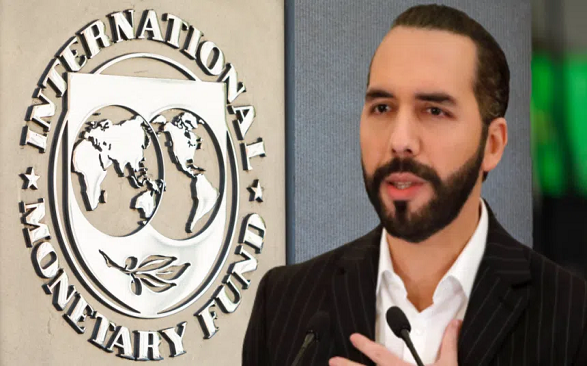by Jude Ayua
The US Securities and Exchange Commission (SEC)’s Crypto Task Force Chair, Commissioner Hester M. Peirce, issued a statement on 4 February disclosing a ten-point agenda for the task force. Pierce began with an analogy of her family annual road trips during her childhood. She explained it was riskier and less enjoyable because of the absence of technology such as the Internet and advanced maps.
Relating those family road trips to the SEC’s crypto road trip in the past decade, Pierce explained, “…the Commission refused to use regulatory tools at its disposal and incessantly slammed on the enforcement brakes as it lurched along a meandering route with a destination not discernible to anyone.”
Acknowledging that road trips are less risky and more enjoyable these because of technology, Pierce confidently declared, “The crypto road trip on which the newly announced Crypto Task Force has embarked likewise should be more enjoyable and less risky than the crypto road trip the Commission has taken the industry on for the last decade.”
Pierce hinted the Task Force will collaborate with federal and international agencies and engage with the public to develop rules enabling innovation and maintaining market integrity. Key areas of focus include providing regulatory clarity on the security status of crypto assets, revising registration paths for token offerings, exploring updates for broker-dealer and custody regulations, and addressing crypto lending and staking concerns.
Read more: US SEC: Gensler maintains stance on crypto regulation; resignation imminent.
The US SEC’s New Approach to Regulation
Before stating the ten-point agenda of the Task Force, Pierce emphasized that the views that she expresses are in her individual capacity as a Commissioner and not those of the SEC or her fellow Commissioners.
- “It took us a long time to get into this mess, and it is going to take us some time to get out of it,” Pierce said. She explained how the SEC rejected the first bitcoin exchange-traded product application in 2013 and chose to practice regulation-by-enforcement. Throughout the past decade, the SEC’s approach lacked legal precision and was commercially impracticable.
- While the Task Force will take the time to create a regulatory framework that encourages innovation, it will not indulge fraud, but strongly combat it to protect investors and promote market integrity. The SEC will also not act beyond its jurisdiction.
- The SEC will collaborate with other regulatory agencies and the US Congress.
- The SEC will be processing applications for exemptive reliefs, no-action letters, and registration statements, which will take time due to high volumes. Approvals will be on a first-come-first-served basis.
- No endorsement of any tokens: “the new commitment to a better regulatory environment should not be viewed as an endorsement of any crypto coin or token,” Pierce stated. She concluded, “…people must decide for themselves, not look to Mama Government to tell them what to do or not to do.”
The US SEC’s ten-point agenda for regulatory reforms
- Security status of cryptocurrencies: The Task Force is examining different types of crypto assets and not restricting the status of crypto assets to the securities laws. This point was a fundamental issue under former SEC Chair Gary Gensler’s leadership leading to over 100 enforcement cases against crypto firms.
- Maintaining regulatory scope: The Task Force will identify some areas that fall outside the SEC’s jurisdiction to ensure it does not overreach its statutory powers which was also an issue during Gensler’s term.
- Coin and token offerings: The Task Force is considering proposing a temporary relief for coin or token offerings. However, issuers or responsible entities must provide specified information, maintain its accuracy, and accept SEC jurisdiction in cases of fraud allegations. This proposal aims to classify such tokens as non-securities, enabling them to trade freely on secondary markets and offering a transitional solution pending the introduction of permanent regulations or legislation.
- Registered offerings: The Task Force will potentially work with SEC staff to recommend the modification of existing registration processes, including “Regulation A and crowdfunding.”
- Special-purpose broker-dealer: The Task Force plans to revisit and review the special-purpose broker-dealer no-action statement. One proposed change is to broaden its scope to include broker-dealers that custody both crypto asset securities and non-securities.
- Investment advisers: The Task Force proposes to work with investment advisers to provide an appropriate regulatory framework for them to safely, legally, and practically custody client assets.
- Crypto-lending and staking: Proposes provision of clarity about crypto-lending and staking programs, specifically if they fall under current securities laws.
- Exchange-traded products: Cognizant of the ongoing SEC’s proposed rule changes to list new types of crypto exchange-traded products, the Task Force will work with SEC staff to provide clear statements about the approach for approving or disapproving these applications.
- Clearing agencies and transfer agents: With plans to work on clearing agencies and transfer agents rules, the Task Force will engage market participants interested in tokenizing securities or using blockchain technology to modernize traditional financial markets.
- Cross-border sandbox: Lastly, the Task Force plans to facilitate cross-border experimentation on a limited scale and temporary timeframe, aiming at more permanent approaches.
Pierce noted the list is inexhaustive, but hopes it would attract interest from stakeholders. Acknowledging that the presence of technology does not rule out challenges, Pierce emphasized collaboration: “If we collaborate, the journey will be exhilarating and rewarding,” she said.
Read also: The New US SEC’s Crypto Task Force: Prospects for regulation.
Stakeholder to Contribute to the Way Forward
Interested stakeholders have been invited to visit the Task Force’s official website for more information. Members of the public can send their feedback and request for in-person or virtual meetings with the Task Force to discuss approaches to the regulation of crypto assets, including those listed in the ten-point agenda.
The US SEC Crypto Task Force has begun a proactive approach to cryptocurrencies, other digital assets, and blockchain regulation, aligning with President Trump’s digital assets agenda. So far, the SEC has rescinded a policy which restricted banks from engaging with crypto customers and has shuffled staff in its Enforcement Division.
The US SEC is a member of the President’s Working Group on Digital Assets alongside the Federal Reserve, Commodities Futures Trading Commission, and Federal Deposit Insurance Commission, which are all reforming their agencies to proactively regulate the crypto market.
Read more: Paul Atkins to Succeed Gensler as US SEC Chair.
Jude Ayua is a policy analyst at CAB. A lawyer, Jude is an associate at Infusion Lawyers where he is a member of the Blockchain & Virtual Assets Group. He is also a member of the Policy & Regulations Committee of the Stakeholders in Blockchain Technology Association of Nigeria (SiBAN). Jude reports and writes on crypto policy and regulations. jude@infusionlawyers.com
Discover more from Crypto Asset Buyer
Subscribe to get the latest posts sent to your email.





